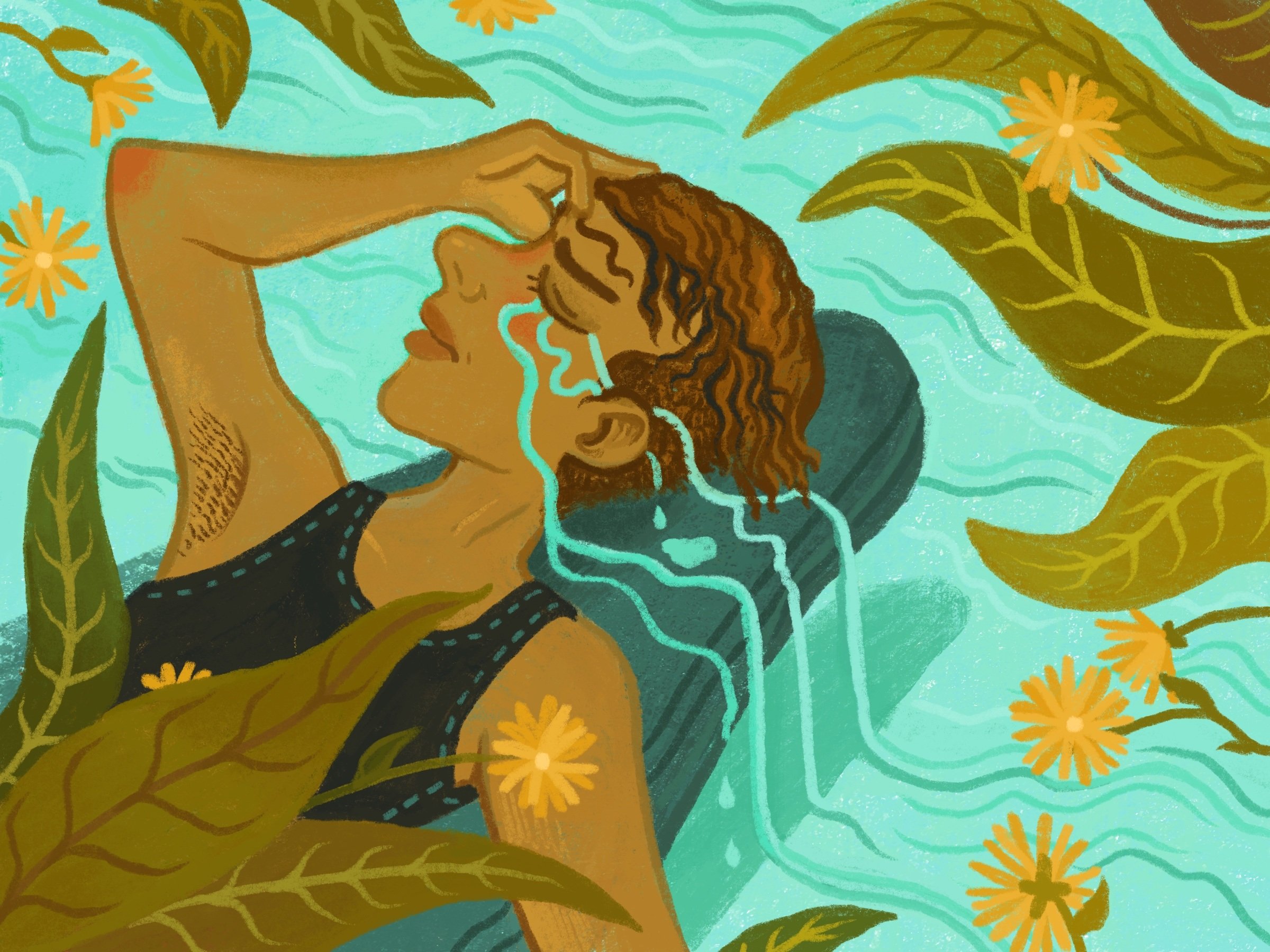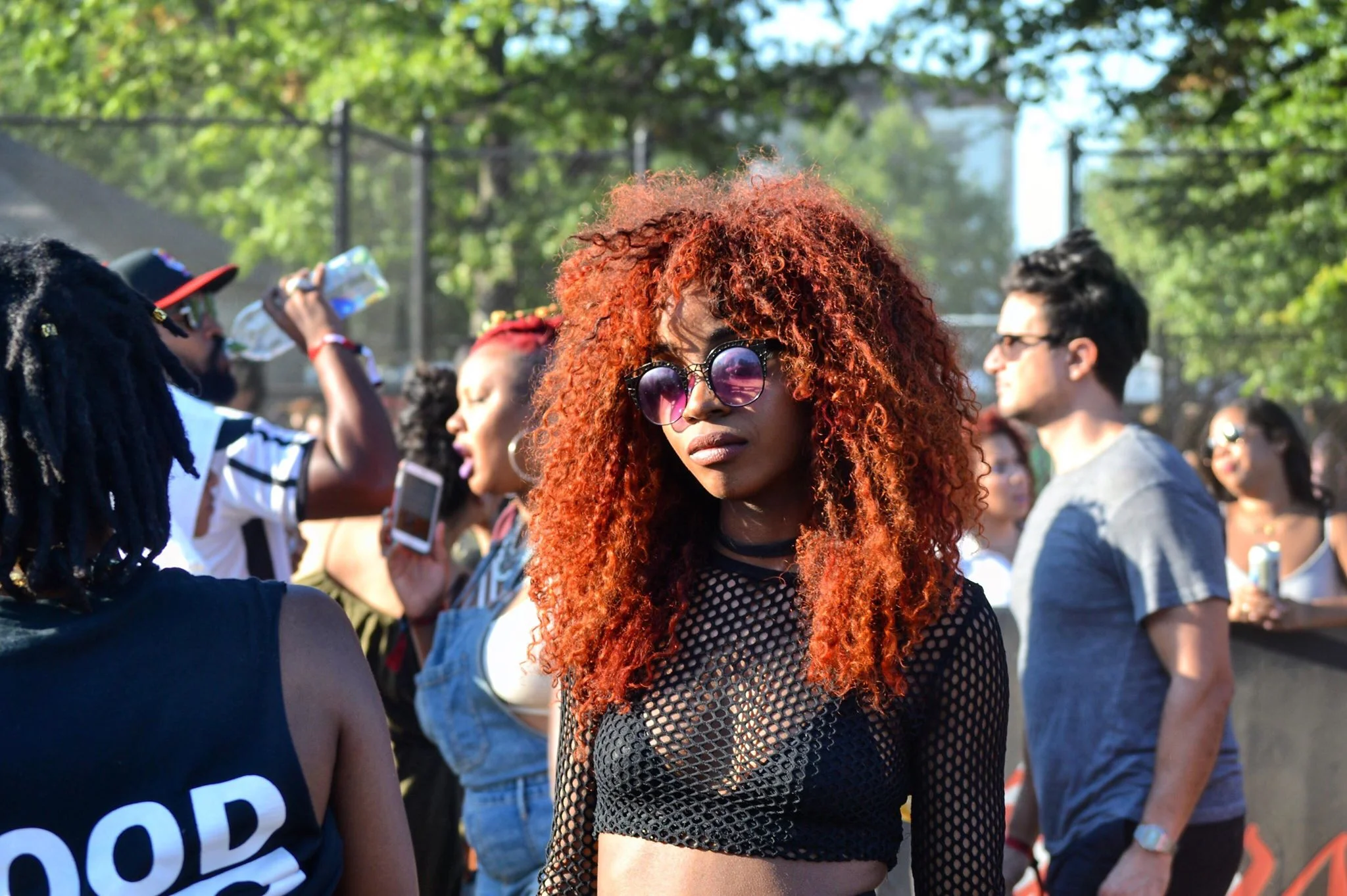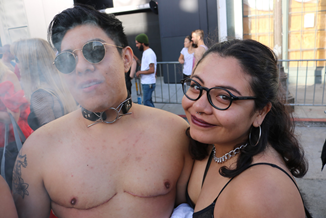Art by Blache Marie
I have been calling for God
screaming, crying, praying, whispering
abstaining, repeating, confessing, submitting
and hearing
silence.
Or at least that’s what
it sounded like.
When I prayed in my bedroom,
and waited for God to respond,
the only response I heard
was my own breathing.
When I prayed on my front porch
waiting patiently for the Lord,
I heard the laughter of my neighbors
and the inhale and exhale of the wind.
But I didn’t hear anything like
what I was listening for
because I was listening for
a white God to call down from his high up throne
and tell me in King James’ English
that I either was or was not good enough.
So many people in my life,
who claimed to represent God,
considered themselves in the position
to make judgments about me.
I just wanted to know
what God judged my worth to be.
So eventually, I stopped calling for God
certain that he was not listening,
certain that his silence was his judgment.
It was then, after I stopped calling for God,
that I began to hear God’s call for me
and it sounded different
than anything I had been taught to expect
in morning after morning of Sunday School.
It was the sound of my own breathing,
of my neighbors laughing,
of the wind inhaling and exhaling.
It was the voice of God calling for me
from inside me
and outside me
and every angle,
from the roots of my locs,
from between my thighs,
from the rolls of my belly
and every inch of dark brown skin.
The voice did not ask me to repent,
did not call me to confess,
did not demand abstinence or submission.
That voice of God prayed to me
teaching me a new kind of prayer
void of guilt and shame and “should”.
Teaching me that God is not a white man in the sky.
God is a black queer femme
in her bedroom,
on her front porch
calling for herself.
When our ideas of peace, rest, worthiness, and wholeness depend on a belief system that was not made for us as queer and trans people of color, accessing that peace and that wholeness can feel impossible. I believe that one of the most empowering things any of us can do is to realize that each of us reflects the image of God. We are the image of God. We are divine. The barrier between us and divinity can be destroyed by the realization that our queerness is exactly what makes us worthy.
At that moment, prayer begins to look different, self-image might change, rest might come easier and condemnation by society matters at least a little less.
When we try to access a white God, we may end up trying to access whiteness. When we worship a masculine God, we might be worshiping masculinity. What if we were to understand that we can use our language, our food, our bodies and the rituals of our ancestors to draw nearer to our source of divinity, to draw nearer to our experience of being divine?
We need community support to continue publishing!
Articles and artwork like these are only possible through your contributions. Please donate today to sustain the wellbeing of artists, writers, healers, and LGBTQ2IA+ people of color.
You can also support our team by picking up
a Rest for Resistance print zine.
Image description:
The image features an illustration of a young Black girl with braided pigtails. Her eyes are closed, and her face looks at peace. In front of her is an altar with lit candles and flowers in mason jars. The background is black and white, as opposed to the color images at the front. A person is sketched in the back, overlooking the girl, and the words, "Come to your river. (Wash my soul)" appear in gold lettering over a greyscale photo of an image.
About Blache Marie:
Blache Marie is a poet, artist and healer recovering from trauma while growing up in the Midwest and learning to breathe again, deeply. Their collective For Brown Bleeders is a gift to other qtpoc who are learning to breathe again. They are based Ithaca, NY.
About CasSandra Calin:
CasSandra Calin is a healer, social worker, and community organizer with Southerners on New Ground. She has been living in Richmond, VA for 6 years. CasSandra got her undergraduate degree in sociology from the University of Richmond and will graduate from Virginia Commonwealth University in May 2017 with her Masters in Social Work. As a Black-Latina, femme, queer woman, CasSandra works to elevate and center marginalized folks in their pursuit of liberation.










